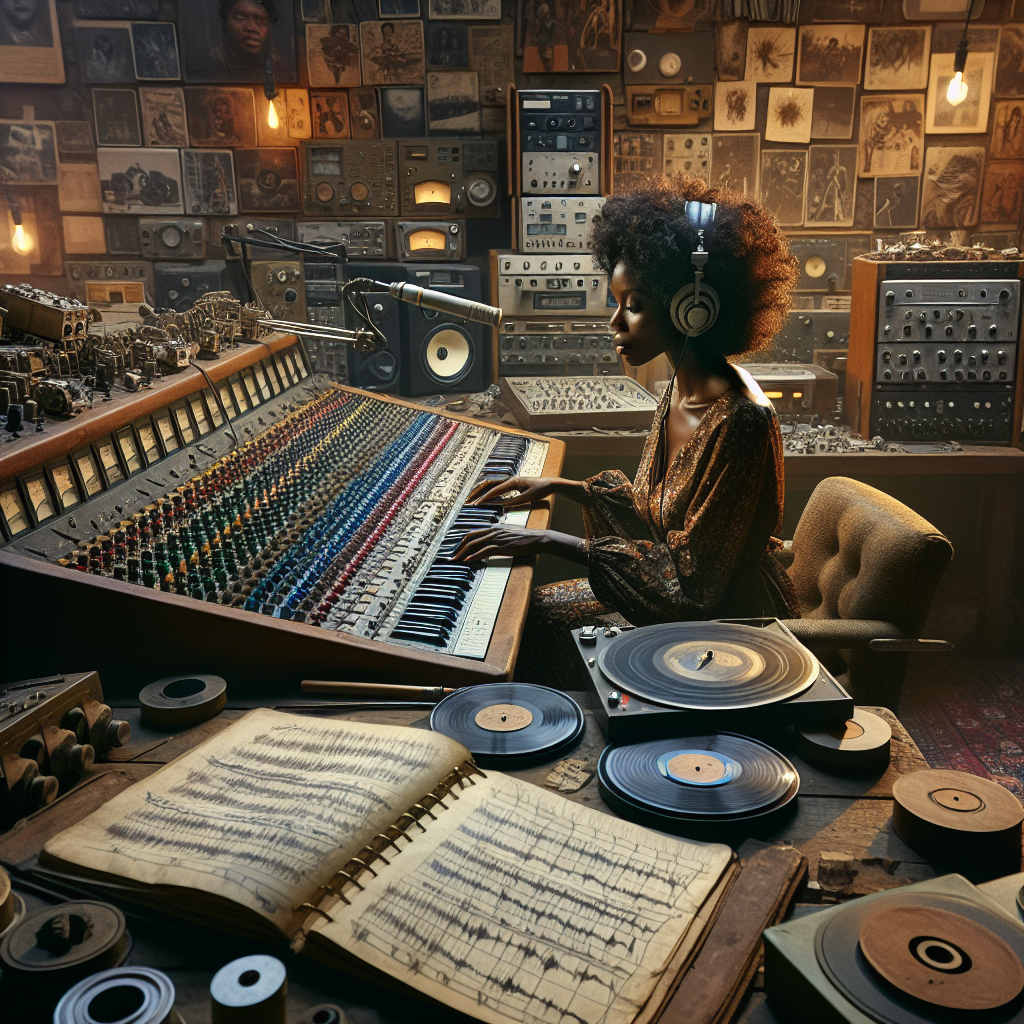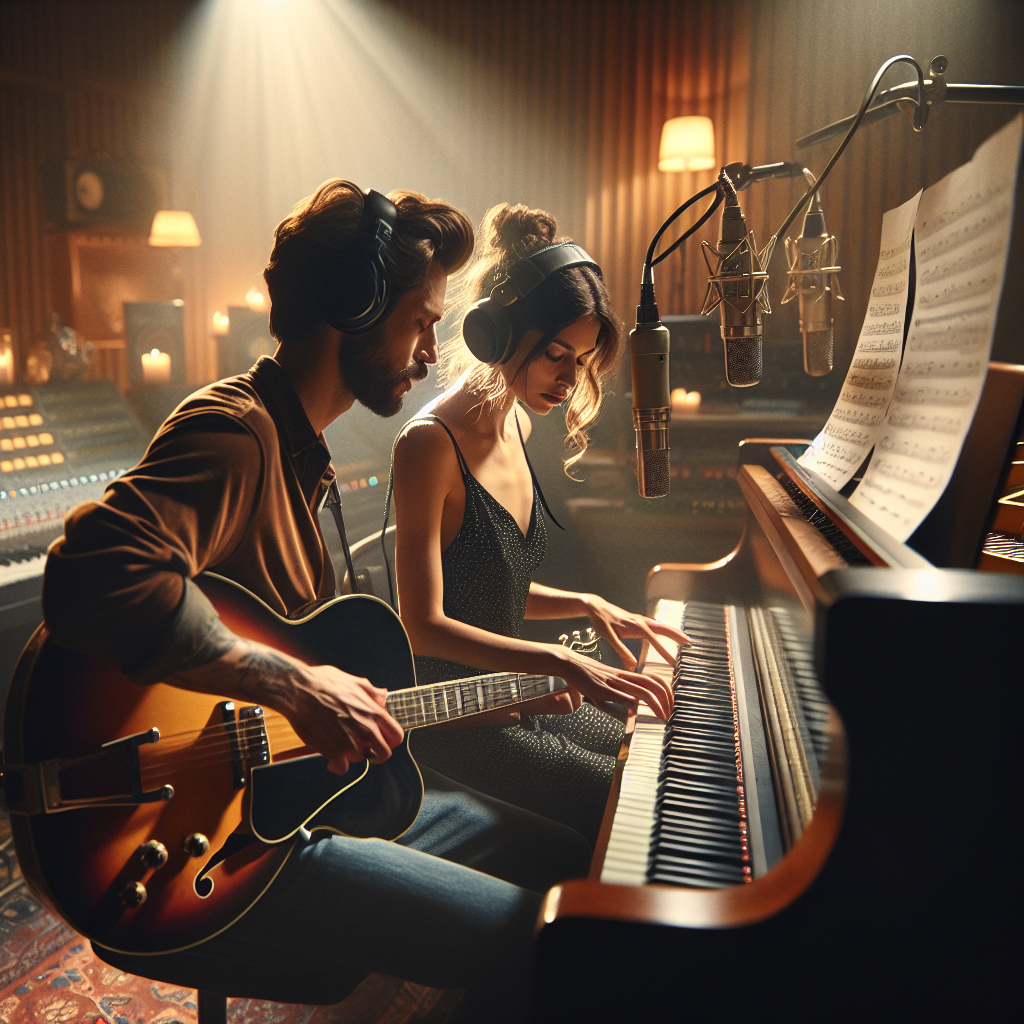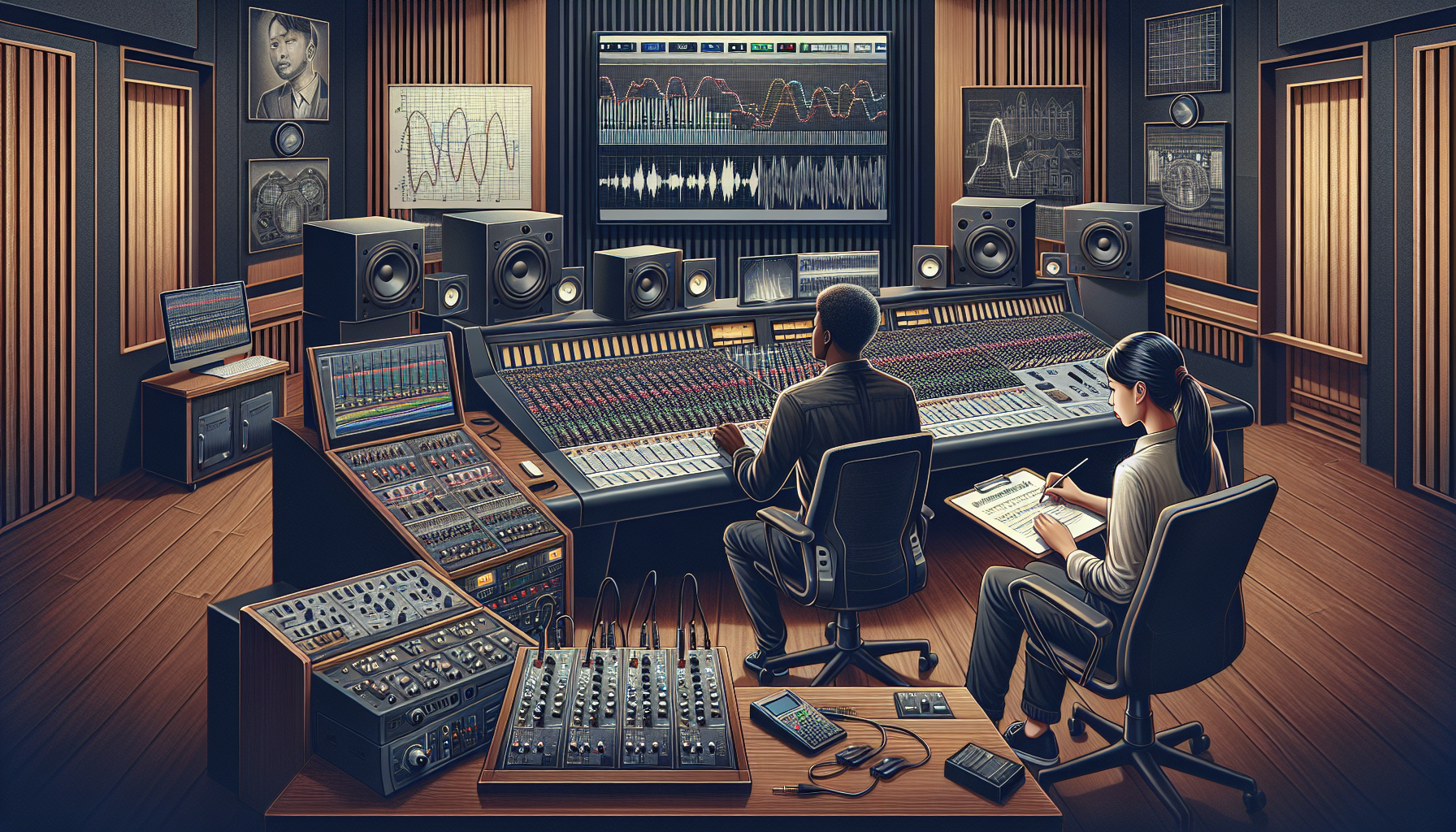Learn How Pros Build Beats, Mix, and Master Tracks
Studio Secrets 101 offers a complete guide about music production for beginners. Music production is the process of creating, recording, arranging, mixing, and mastering music. It involves everything from composing melodies and programming beats to recording instruments and vocals, adding effects, and finalizing the track for release. A music producer oversees the creative and technical aspects, ensuring the song sounds polished and professional. In order to learn music production you need to keep these 4 main components in mind:
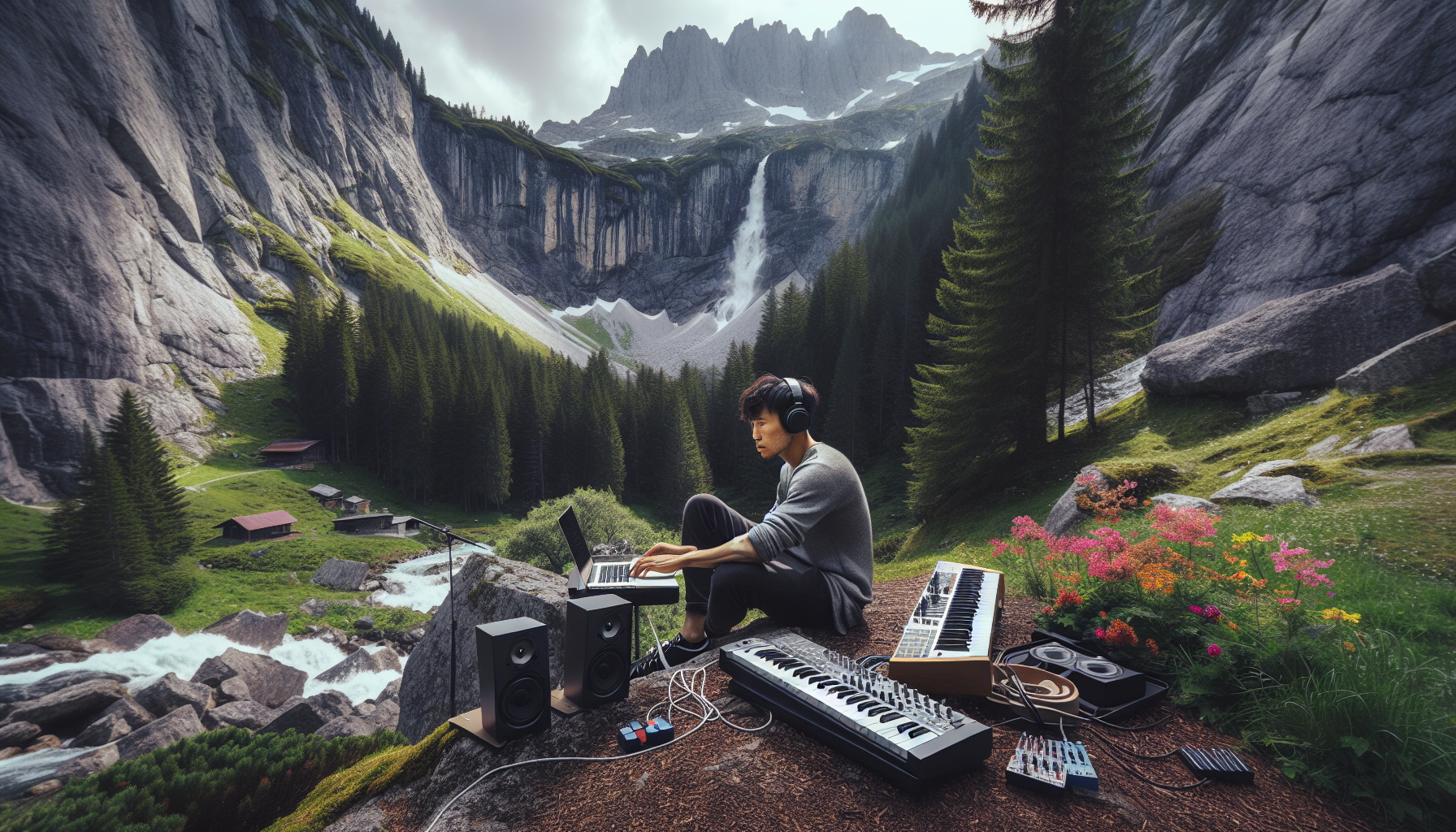
Choosing the Best DAW for Beginner Music Producers
A DAW is the software you use to produce music. Here are some of the best software for beginners to learn music production:
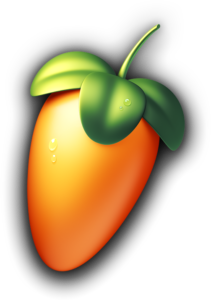
Great for beginners and professional producers.

Ideal for electronic music production and live performances.
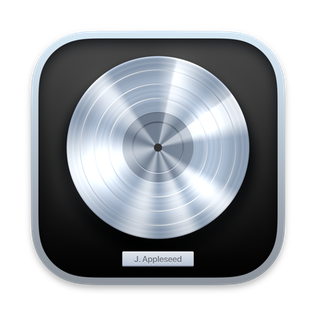
A powerful DAW for Mac users.

Industry-standard for recording studios.
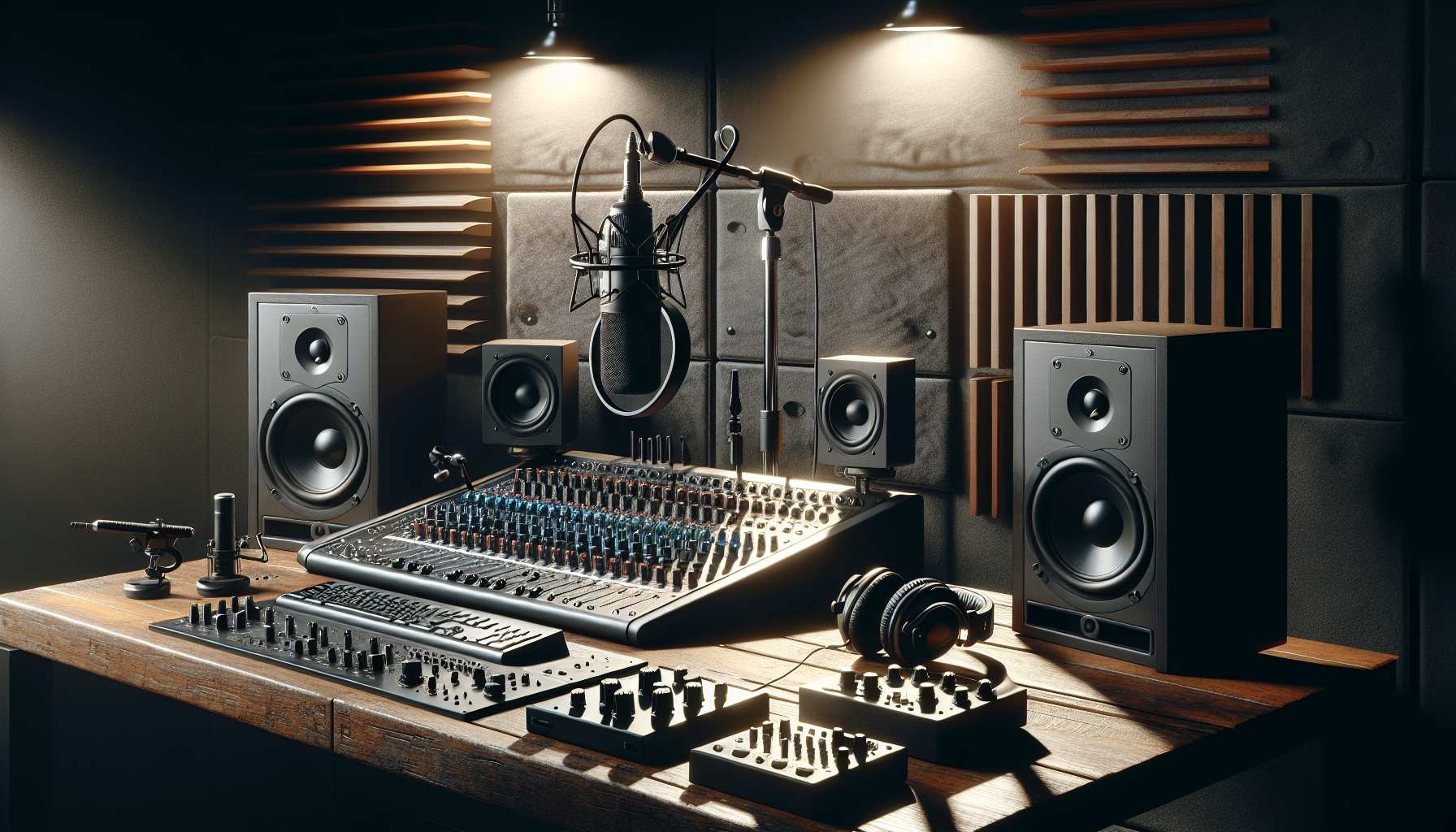
Essential Equipment for Music Production
While you can start with just a laptop and software as a beginner producer, investing in some key gear will improve your workflow and sound quality.
- Computer – A powerful Mac or PC with a good processor and RAM.
- Audio Interface – A device that connects your instruments and microphone to your computer. (e.g., Focusrite Scarlett 2i2)
- MIDI Controller – A keyboard or pad that helps with creating melodies and beats
- Studio Headphones – For accurate sound monitoring. (e.g., Audio-Technica ATH-M50x)
- Studio Monitors – Flat-response speakers to hear your mix properly. (e.g., Yamaha HS5)
Tip: Start small and upgrade as you progress.
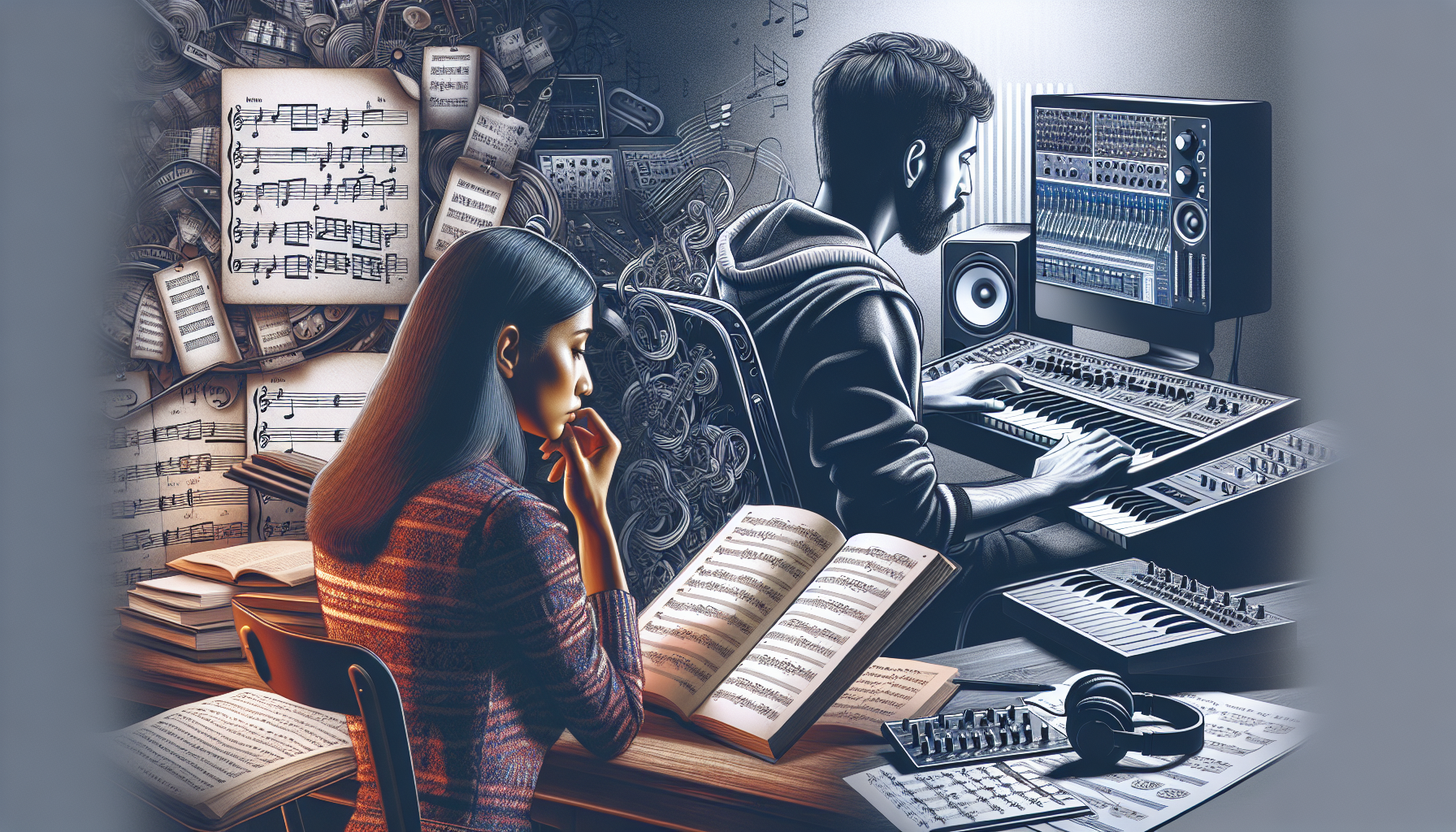
Music Theory & Sound Design For Beginners
While you don’t need to be a music theory expert, understanding basic concepts like scales, chords, and rhythm will help you create better compositions as a beginner music producer.
Where to Learn Music Theory for Producers:
- YouTube Channels: “Signals Music Studio,” “Andrew Huang”
- Online Courses: Udemy, Coursera, and Skillshare offer great beginner courses.
- Books: Music Theory for Computer Musicians by Michael Hewitt
Sound design is another essential skill, especially for electronic producers. Learn how to use synthesizers (Serum, Massive, Sylenth1) and effects like EQ, reverb, and compression.
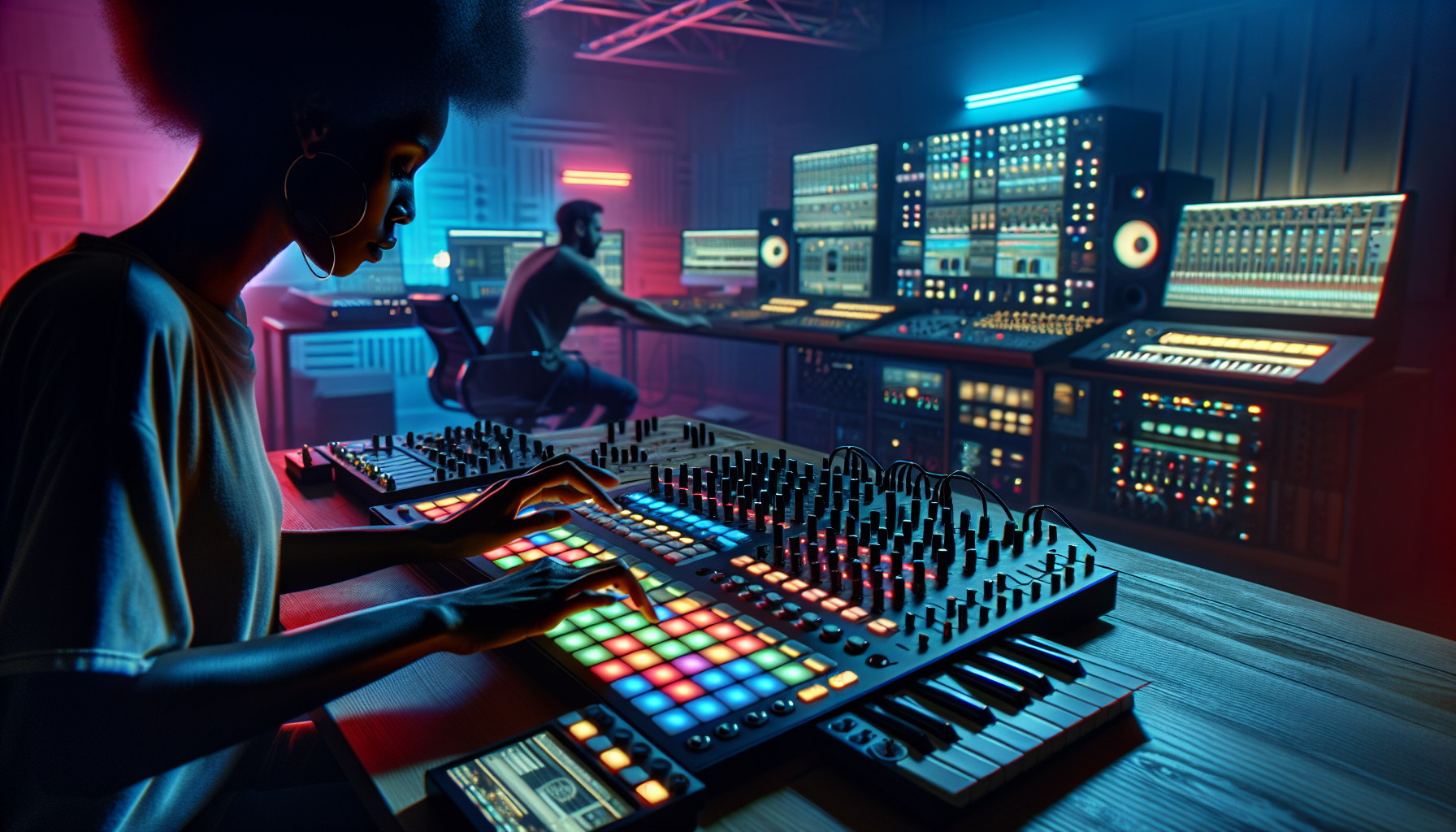
Sampling & Beat Making
Sampling is a huge part of modern music production. Whether you’re chopping old records or using royalty-free loops, here’s how to start:
- Splice – Royalty-free samples & loops.
- Loopmasters – High-quality sample packs.
- Tracklib – Legal access to classic samples.
- Cymatics – Free and premium sound packs.
Tip: Always check if a sample is royalty-free before using it commercially!
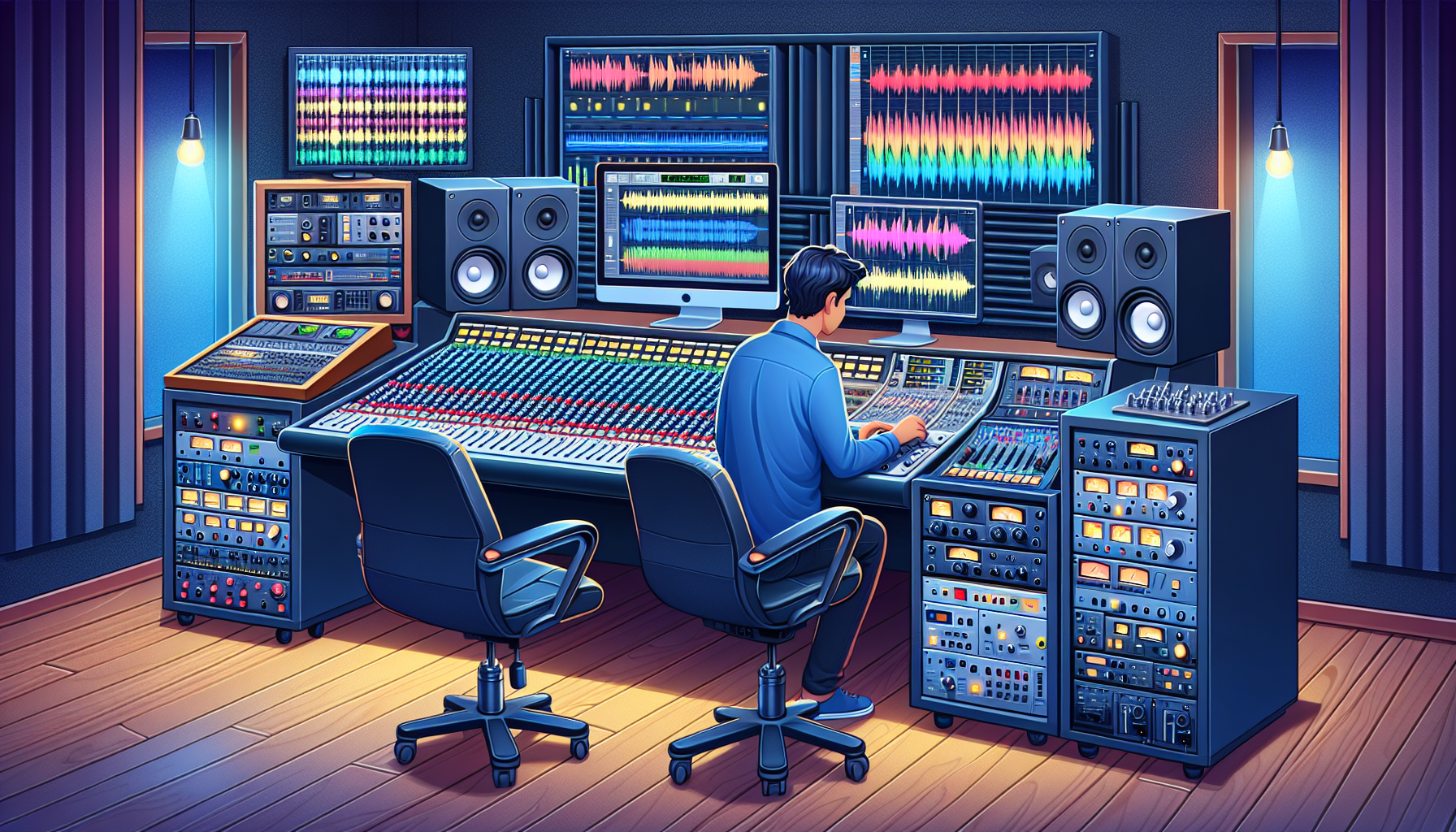
Mixing & Mastering For Beginners
Mixing is about balancing all elements in your track, while mastering makes the final track sound polished and loud.
Key Mixing Techniques:
- EQ – Remove unwanted frequencies and balance instruments.
- Compression – Control dynamics for a tight sound.
- Reverb & Delay – Add depth and space to your mix.
- Panning – Place sounds across the stereo field for clarity.
Mastering Tools for Beginners:
- iZotope Ozone – A great all-in-one mastering suite
- FabFilter Plugins – High-quality EQs and limiters.
- Waves Plugins – Industry-standard mixing & mastering tools.
Tip: A/B test your mix on different speakers (headphones, car speakers, phone, etc.).
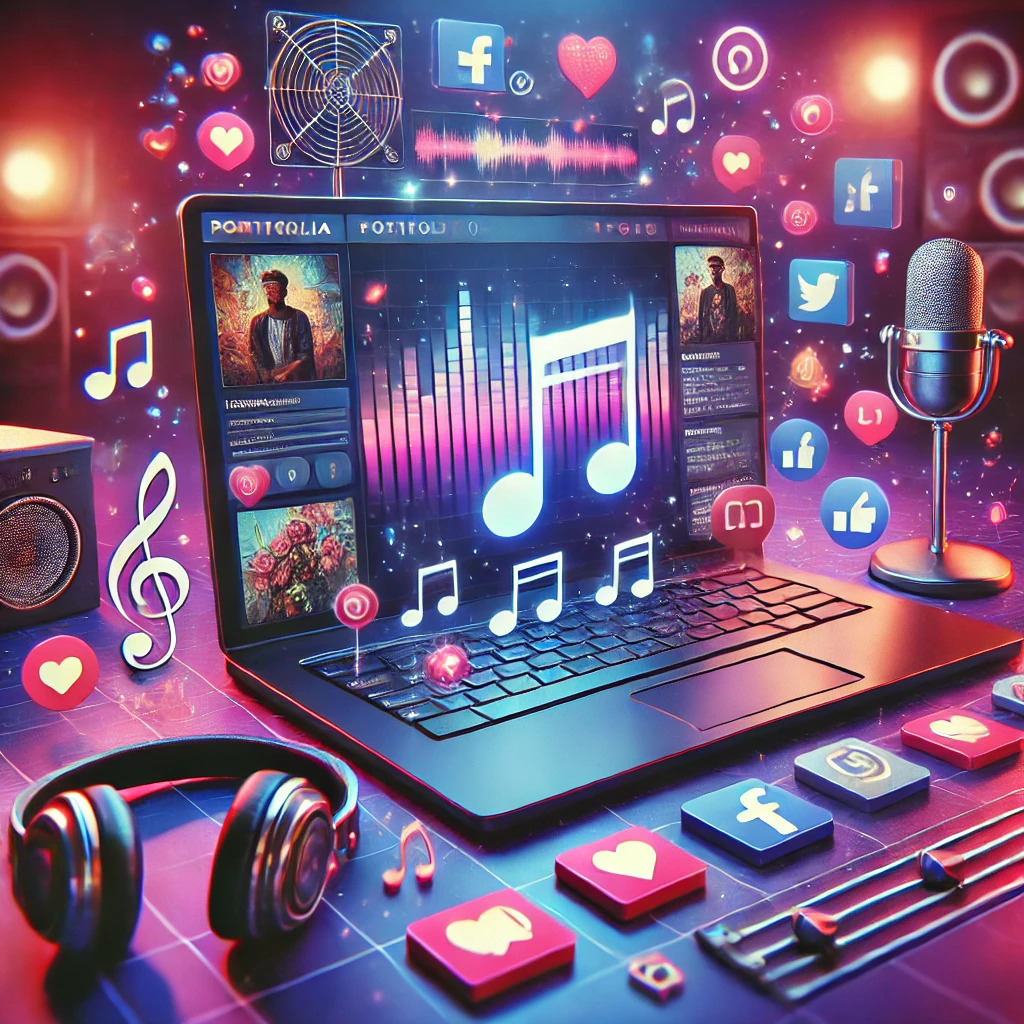
Building a Portfolio & Sharing Your Music
Once you’ve created a few tracks, this is how to promote your beats online:
- SoundCloud & Audiomack – Great platforms for independent artists.
- YouTube & TikTok – Short-form content helps with exposure.
- Spotify & Apple Music – Use distribution services like DistroKid or TuneCore.
Tip: Engage with communities on Reddit, Discord, and Facebook groups to gain feedback and exposure.
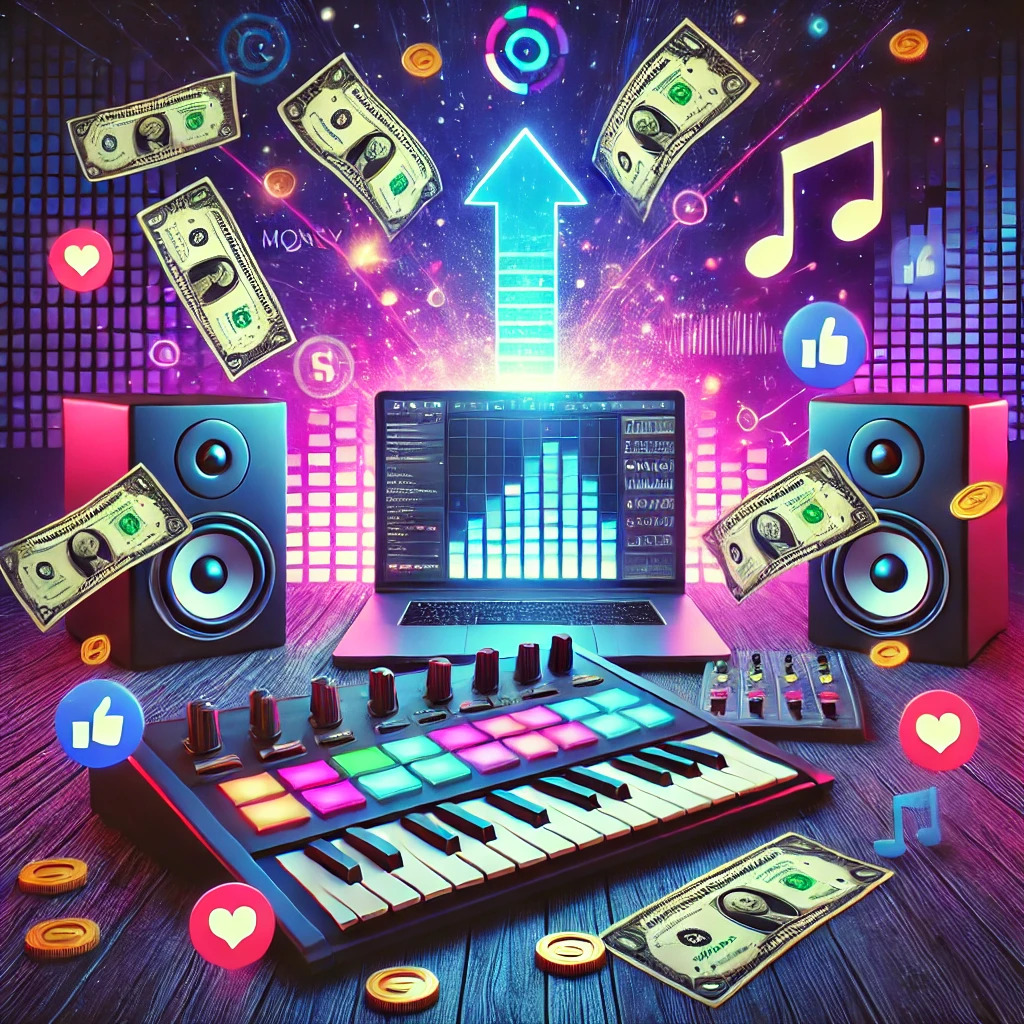
Making Money as a Music Producer For Beginners
Once you’re comfortable with music production, here are a few ways for a beginner to make money as a music producer:
- Sell Beats – Platforms like BeatStars and Airbit let you license beats.
- Freelance Production – Offer mixing/mastering on Fiverr or Upwork.
- Sync Licensing – License your music for TV, films, and ads.
- Teaching & YouTube – Create tutorials and monetize your content.
Start Now & Keep Learning!
Music production is a lifelong journey, and the best way to improve is by practicing consistently. Don’t worry about perfection—just start creating, experimenting, and refining your skills.

